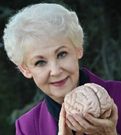Panicked or Prudent
©Arlene R. Taylor, PhD
www.ArleneTaylor.org
 It turned out to be an interesting day.
It turned out to be an interesting day.
****
I knew him, the gentleman sitting across from me. As a long-distance runner for years before our paths had crossed, his face reflected fear.
“It’s hard to admit, but I’m scared—of all these new organisms out there. I’ve heard that underlying health issues can be a risk factor, especially lung conditions. Me? I’ve been treated for a chronic illness....”
I waited.
“I was told my immune system could be weakened by too much competitive long-distance running and my doctor suggested cutting back—but I like the high I get from long-distance running. Not running scares me.”
“It’s one thing to train for an Olympic competition,” I said. “It’s another to make over-exercising a lifetime career. Of course, you get a high. When the body begins to feel pain, the brain triggers the release of endorphins, the brain’s natural morphine. As adrenalin rises (from competition or excitement or fear, for example), so does dopamine, which also impacts the brain reward system. I’m sure you know a person can become dependent upon—if not addicted to—adrenalin, dopamine, and endorphins.”
*****
Our grandmother is having her 90th birthday celebration. She lives overseas and has invited us to the party. With all the news about this Chinese virus or Asian virus, we’re concerned,” said one face.
“First, this is not a Chinese virus or even an Asian virus,” I explained. “Yes, it may have been identified in Asia, but viruses do not target individuals of a specific racial or ethnic background or gender or even religious or political affiliation. However, if a person with an underlying chronic disease (especially one that involves the lungs) becomes infected with the virus, their immune system might have difficulty fighting the illness successfully.”
“Well, should we go or not? We’re feeling rather panicked at the moment!”
“It is appropriate to be concerned about taking steps to implement prevention strategies. It is unhelpful to become panicked. The stress of anxiety, worry, and their parent emotion “fear” can suppress immune system function—exactly what you want to avoid doing. Sometimes, fear can lead to stigmatizing others, which can increase their stress levels. Since travel can increase your risk of exposure to harmful organisms, many are avoiding nonessential travel. That needs to be your decision.
*****
“What’s this business about not getting to go on the cruise we’ve been planning for the last year, for heaven’s sake?”
The voice boomed from my mobile phone, which I held even further from my ear. Good grief, I thought to myself. Does this voice think I am a travel agent?
“I’ve got the whole thing paid for and now we hear this business about nonessential travel and cruise companies not sailing for months or years. Has everyone gone nuts? So, what are you doing? I’d like to know!””
When the booming voice paused to take a breath, I asked, “Do you know what a pandemic involves?”
Silence.
“The World Health Organization only announces a pandemic when the situation is very serious. It is inconvenient and a disappointment when travel is curtailed.”
The phone was disconnected.
I sighed. Bottom line in my book: the impact of pathogenic (disease causing) organisms on you and your health depends on several factors, four of them being:
- The specific organism, as some are easier to catch or more deadly (virulent) than others
- The type and amount of exposure you receive to the organism
- Your current level of health, which involves your typical lifestyle and habits along with the strength of your immune system
- Whether an effective treatment is available
These factors—often involving lifestyle and choices—are at least partially, if not completely, within your control.
Dump the panic. Avoid the fear. It can suppress your immune system!
Be proactively prudent. Create and maintain a longevity lifestyle. Make healthier choices. It matters!

